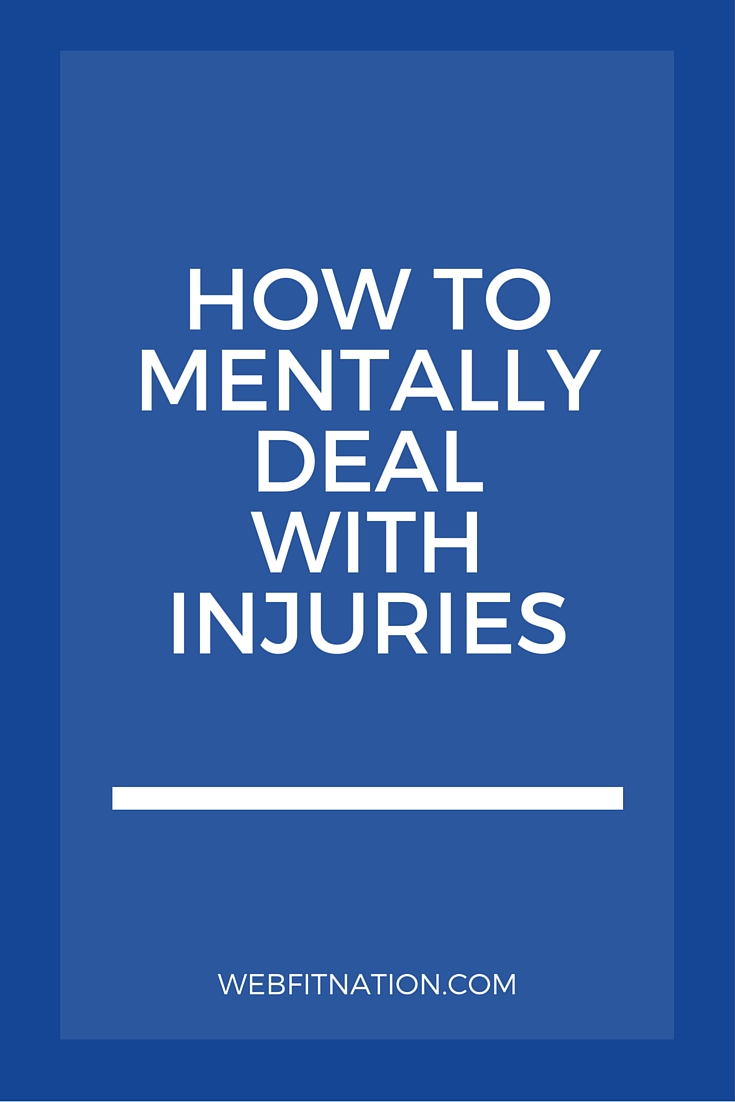At some point in our life we all face some kind of injury. Though I don’t know the statistics on injuries sustained at work or during exercise, I’m going to figure that a substantial portion of people sustain a serious injury at some point in their careers. When I was a personal trainer in corporate clubs I regularly worked with people of all sorts helping them recover and return to their exercise regimen or work better than ever. Finally, having recovered from a serious injury during my own career as a torn ACL, I learned first hand how difficult recovering from a serious injury is.
Accept that getting hurt sucks and you will feel bad at times, especially early in your recovery when you’re more disabled than working toward recovery. You will not be able to do the normal things to which you are accustomed. You will be in pain. You’ll feel frustrated, angry, and depressed. You’ll want to curl up in a ball and withdraw from life. These reactions are normal and, to some degree, healthy, as you have to allow yourself to grieve for your loss.
At the same time, if you allow yourself to stay in that funk for too long, you will surely slow your recovery. So, after a short time, get over your “pity party” and get your mind on your recovery; keep focused on the present and the future. I remember being so torn about my injury but my trainer told me, "It's not about how you get hurt, it's how you come back from being hurt." The day after my surgery I showed up for therapy and had no idea what to expect. The problem is that rehab hurts (a lot!), is boring, tiring, monotonous, in other words, it gets old fast. That’s why so many people that have injuries end up either shortening or skipping rehab sessions, or not putting in their best effort. The result: slowed or incomplete recovery.
I have seen injuries save a lot of people as well. It seems weird right? Think of it this way. Getting injured can teach you to be tough, endure hardship, and really find your motivation for goals. Injuries can also enable you to focus on areas of your body that have been weaknesses, but you simply haven’t had time to work on them. Your low back injury may cause you to focus on strengthening your core, and stretching your hamstrings. Your knee injury might slow you down so you work on your quad strength and ankle/calf flexibility. The goal is for you to return to your job or exercise program physically better than you were before.
Mental imagery can also play a major role in your mental recovery from an injury as well. Imagery is not just something that goes on in your head. In fact, it connects your mind and your body and, amazingly, activates muscles in the same way as when you are actually performing exercise or physical labor on your job. Research has shown that you can improve your skills without actual training by engaging in regular mental imagery.
The bottom line is when you get seriously injured, it is a real bummer. But what is an even bigger problem is not returning fully or as quickly as possible to your exercise program or job. For you to return to better than before, you need to do everything possible to facilitate your recovery. That means following your physical rehab program to the letter. But you also need to develop a habit of conjuring up healthy thoughts to foster a full recovery as well. This will allow your body and your mind to be fully recovered and prepared for your job and exercise program.

